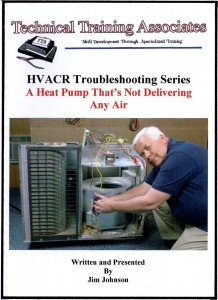BOSTON — As part of the Biden-Harris Administration's Investing in America agenda, the U.S. Environmental Protection Agency (EPA) announced the general competition selection of the New England Heat Pump Accelerator to receive a $450 million Climate Pollution Reduction Grant to implement community-driven solutions that tackle the climate crisis, reduce air pollution, advance environmental justice, and accelerate America's clean energy transition.
The New England Heat Pump Accelerator is a coalition application led by Connecticut Department of Energy and Environmental Protection, in partnership with the Maine Governor's Office of Policy Innovation and the Future, Massachusetts Department of Energy Resources, New Hampshire Department of Environmental Services, and Rhode Island Office of Energy Resources. The selected application will fund projects across Connecticut, Maine, Massachusetts, New Hampshire, and Rhode Island that will rapidly accelerate the adoption of cold-climate air-source heat pumps, heat pump water heaters, and ground source heat pumps. The project will support coalition partners in providing resources for more than 500,000 single-family and multifamily residential buildings.
"President Biden believes in the power of community-driven solutions to fight climate change, protect public health, and grow our economy. Thanks to his leadership, the Climate Pollution Reduction Grants program will deliver unprecedented resources to states, local governments, and Tribes to fund the solutions that work best in their communities," said EPA Administrator Michael S. Regan. "Selected recipients have put forward ambitious plans to advance sustainable agriculture, deploy clean industrial technologies, cut emissions and energy costs in homes and commercial buildings, and provide cost- and energy-efficient heating and cooling to communities, creating economic and workforce development opportunities along the way."
"This grant will be transformational for Massachusetts' families, making heat pumps more accessible for low-income families and accelerating our transition away from fossil fuels. I am grateful for my colleagues' partnership in helping secure this funding," said U.S. Senator Elizabeth Warren.
EPA made its selections through a rigorous grants competition that was designed to be fair and impartial. The Agency reviewed nearly 300 applications that were submitted by entities from across the country and requested a total of nearly $33 billion in funding.
The 25 selected applications—from states, a Tribe, local governments, and coalitions of these entities—will receive federal funding to implement local and regional solutions. Many of these projects can be expanded and provide examples that other states, local governments, Tribes, and even businesses can replicate in their work to tackle the climate crisis.
Together, these selected projects will implement ambitious climate pollution reduction measures designed by states, Tribes, and local governments that will achieve significant cumulative GHG reductions by 2030 and beyond. When estimates provided by all selected applicants are combined, the proposed projects would reduce greenhouse gas pollution by as much as 971 million metric tons of carbon dioxide equivalent by 2050, roughly the emissions from 5 million average homes' energy use each year for over 25 years.
EPA expects to announce up to an additional $300 million in selections under the Climate Pollution Reduction Grants program for Tribes, Tribal consortia, and territories later this summer.
State, Tribal, and local action is vital to deliver on the President's commitment to reduce climate pollution by over 50 percent by 2030 and achieve net-zero emissions no later than 2050. The innovative measures contained in the selected applications, developed with input from local communities, are expected to achieve substantial public health benefits such as reducing exposure to extreme heat, improving air quality, reducing energy burden for lower income Americans, improving climate resilience, and providing workforce and economic development opportunities, particularly in low-income and disadvantaged communities.










